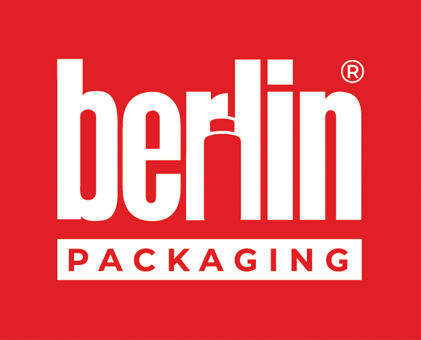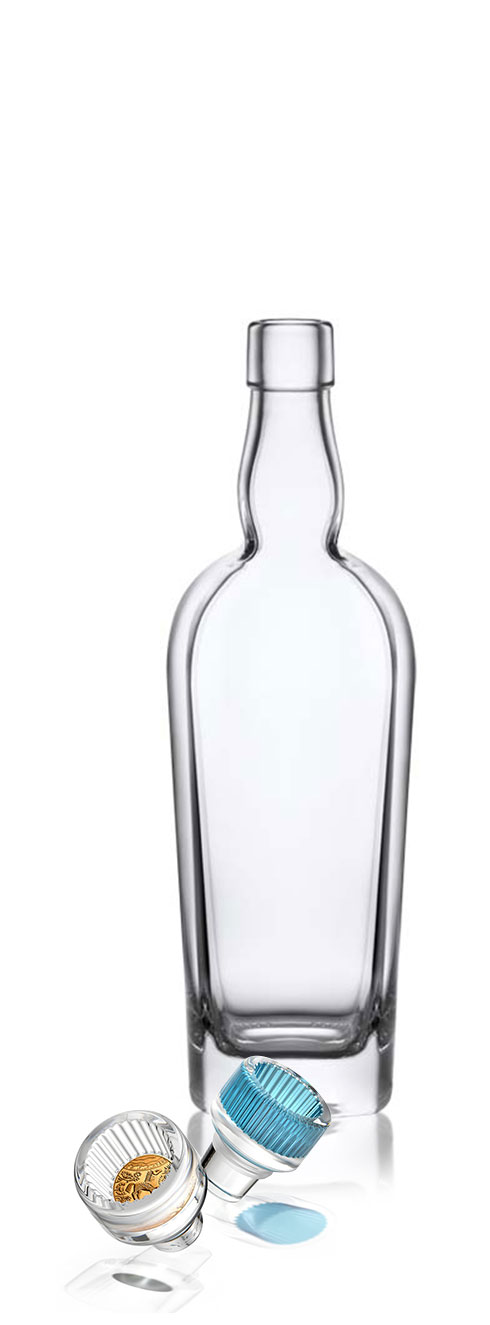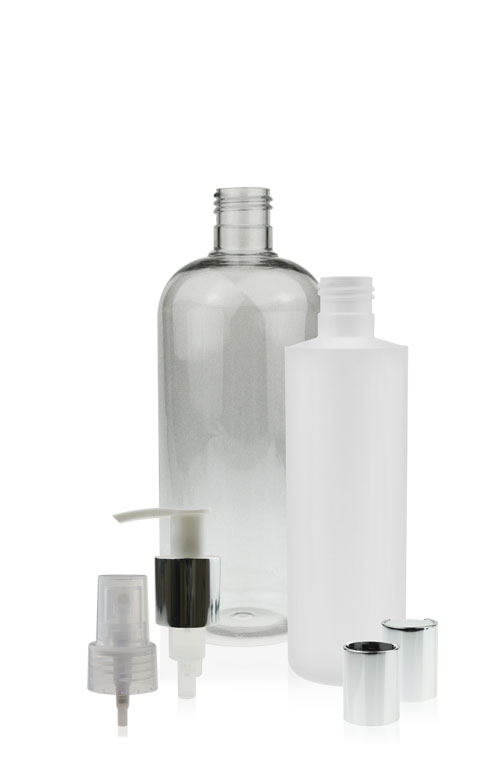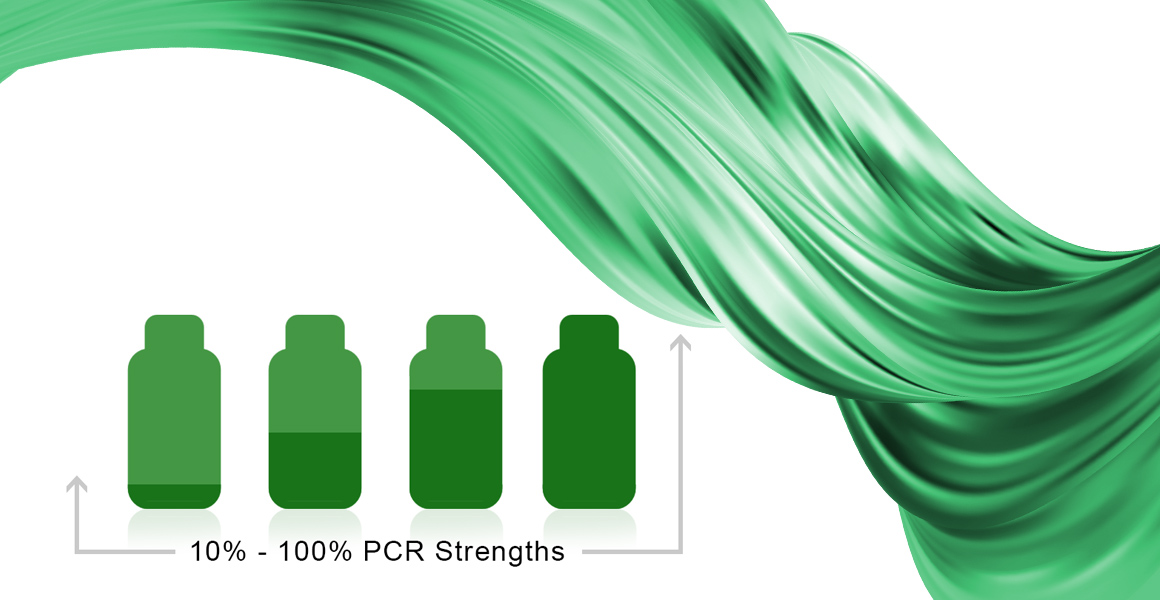Packaging Education, Plastic Bottles
What Are PCR Plastic Bottles?
PCR is recycled plastic made from discarded items such as plastic milk and drinks bottles. Post-consumer resin (PCR) is an environmentally sustainable solution for reusing single-use materials that would otherwise be disposed of in landfill sites.
The production of PCR begins with the collection and sorting of these discarded plastics in commercial and residential recycling programs. The recovered items are ground, washed, dried and pelletised – ready to be used again in future manufacturing.
Primarily sourced in the UK to minimise the transportation carbon footprint, Berlin Packaging UK’s PCR materials are closely monitored for traceability and reassurance, while meeting stringent European regulations for genuine peace of mind.
For a full selection of Bio and PCR bottle range please CLICK HERE
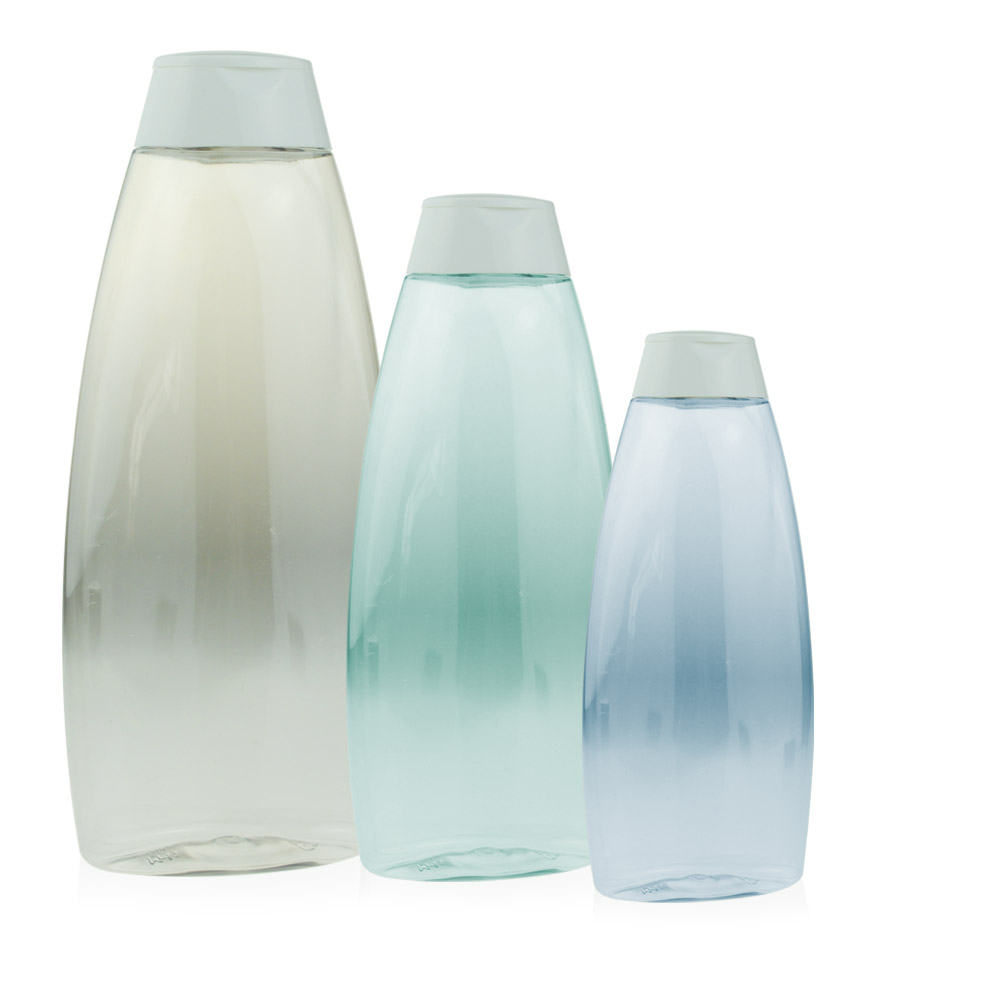
What PCR strengths can be achieved?
Customers can increase the levels of PCR in their packaging to percentage levels up to 100%. The minimum amount can be processed at 10%. Increasing PCR levels provides an even greater sustainable solution, especially for customers looking to embrace the circular benefits of recycled content in their product packaging.
What are the benefits of PCR?
- • PCR reduces virgin plastic consumption
- • PCR reuses recovered plastics such as single-use items
- • The use of PCR greatly reduces landfill dumping
- • PCR can be recycled again for new manufacturing
- • PCR plastics don’t require any further depletion of new fossil fuels
- • Berlin Packaging UK’s PCR is primarily sourced in the UK to reduce transport and lessen our carbon footprint
- • Using PCR packaging helps brand owners; show consumers they care about the impact of their product packaging on the environment
- • The use of post-consumer resins help forge a circular economy.
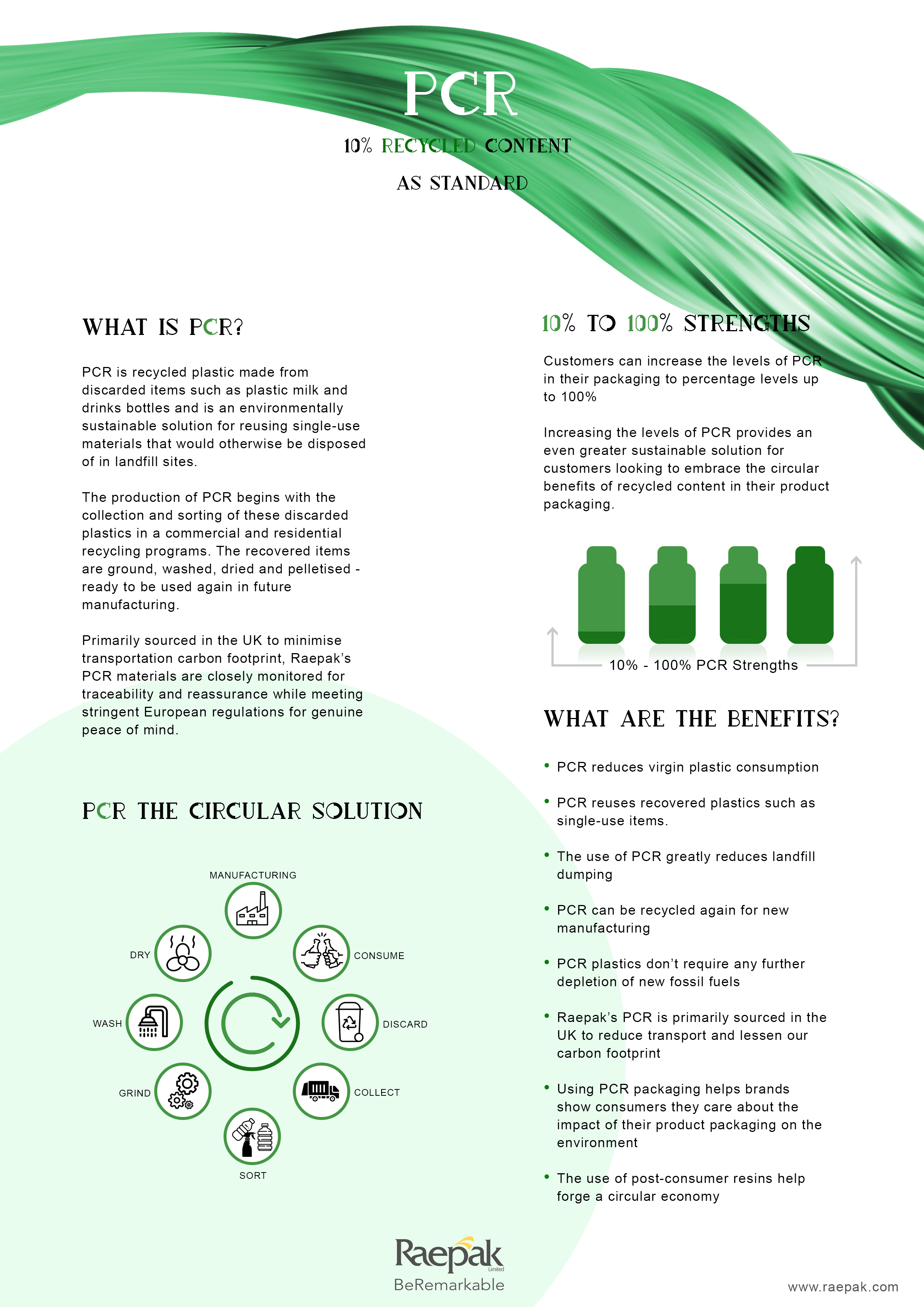
Whis Is The PRC Circular Solution?
Most plastic products have a life cycle. PCR products have a cycle that gets plastic waste back into the manufacturing process. The procedure includes:
- Manufacture new products using a range of 10% to 100% PCR
- The new products are purchased and used by the consumer
- Consumers discard plastic products using the correct recycling facilities
- The local council collects the recyclable waste
- A recycling centre sorts the waste into the correct categories
- The plastic is grinded using special equipment
- The plastic material (PCR) is washed and dried
- This is pelletised and distributed back to the manufacturer to use in new products again.
How Can I Get Involved?
Increasing the level of PCR provides an even greater sustainable solution for customers looking to reduce their environmental impact. There are tiny colour variances depending on the amount of PRC used for each batch. The increase in PCR can mean some batches may look different from the last. Increasing percentage ranges above 10% will have this effect. This is because PCR originates from discarded plastics and as a result, there can be a small number of inclusions in the source materials.
However, Berlin Packaging UK’s Account Managers can guide all customers looking to change. This would be dependant on specific objectives and overall requirements. If you have a keen interest in using recycled plastics, we advise carrying out the recommended testing before the manufacturing process begins.
You can view our HDPE & PET bottle range and select a sample for testing. Alternatively, please get in touch and speak to one of our friendly account managers. They can help you with all your questions and get your product into the market place.
